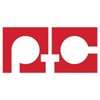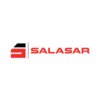Filter interviews by
Magnum Mi Steel Quality Laboratory Engineer Interview Questions and Answers
Magnum Mi Steel Quality Laboratory Engineer Interview Experiences
1 interview found
I applied via Approached by Company and was interviewed before Jul 2022. There were 3 interview rounds.

(1 Question)
- Q1. What is my designation.
(2 Questions)
- Q1. What is DVC, and UTM
- Ans.
DVC stands for Data Version Control and UTM stands for Universal Testing Machine.
DVC is a system for managing and versioning data sets for machine learning projects.
UTM is a machine used to perform tensile, compression, and bending tests on materials.
DVC helps track changes in data, code, and models in a project.
UTM measures the mechanical properties of materials such as strength, elasticity, and toughness.
- Q2. What is the most important in lab
- Ans.
The most important aspect in a lab is accuracy and precision in testing procedures.
Accuracy and precision in testing procedures ensure reliable results
Adherence to quality control measures is crucial
Proper calibration and maintenance of equipment is essential
Following standard operating procedures (SOPs) is key to consistency
Regular training and education for lab staff is important
Interview Preparation Tips
Skills evaluated in this interview
Top trending discussions






Interview questions from similar companies

I applied via Naukri.com and was interviewed in Apr 2024. There were 2 interview rounds.
(1 Question)
- Q1. About fabrication
(1 Question)
- Q1. About family and personal life

I appeared for an interview in Apr 2023.

Good question, you also easily crack
(1 Question)
- Q1. What is motor, what is transformer
- Ans.
A motor is a device that converts electrical energy into mechanical energy. A transformer is a device that transfers electrical energy from one circuit to another through electromagnetic induction.
A motor consists of a rotor and a stator, which interact with each other to produce rotational motion.
Transformers are used to step up or step down voltage levels in electrical circuits.
Motors are commonly used in appliances ...
Interview Preparation Tips

Quality Engineer Interview Questions & Answers
Jindal Group Of Companiesposted on 10 Dec 2021
I applied via Recruitment Consultant and was interviewed in Jun 2021. There were 4 interview rounds.
Interview Questionnaire
2 Questions
- Q1. Why do you want to leave your current employment?
- Q2. What was inappropriate or bad in your company?
Interview Preparation Tips

I applied via Naukri.com and was interviewed in Jun 2024. There were 2 interview rounds.
(2 Questions)
- Q1. What is the chromium percentage in steel?
- Ans.
Chromium percentage in steel varies depending on the type of steel, typically ranging from 10.5% to 30%.
Chromium is added to steel to improve its corrosion resistance and hardenability.
Stainless steel typically contains around 10.5-30% chromium.
Examples of chromium-containing steel include 304 stainless steel (18% chromium) and 420 stainless steel (12% chromium).
- Q2. Sulphur Advantages and Disadvantages in Steel
- Ans.
Sulphur can improve machinability and strength in steel, but can also lead to brittleness and reduced ductility.
Advantages of sulphur in steel include improved machinability, allowing for easier cutting and shaping of the material.
Sulphur can also enhance the strength of steel, making it more suitable for certain applications.
Disadvantages of sulphur in steel include increased brittleness, which can lead to cracking an...
(2 Questions)
- Q1. What are the Grain structures of steel at different temperatures?
- Ans.
Grain structures of steel change at different temperatures affecting its properties.
At room temperature, steel has a fine grain structure which provides good strength and toughness.
As temperature increases, the grain size also increases, leading to reduced strength and toughness.
At high temperatures, steel can have a coarse grain structure which may result in lower mechanical properties.
Grain refinement techniques like...
- Q2. What is the final/finished product temperature of Rebar?
- Ans.
The final/finished product temperature of Rebar is typically room temperature.
Rebar is typically stored and used at room temperature
The temperature of Rebar can vary depending on the environment it is stored in
Rebar is not typically heated or cooled as part of the manufacturing process
Interview Preparation Tips

(2 Questions)
- Q1. Percentage of chromium in steel?
- Ans.
Chromium content in steel typically ranges from 10-30% depending on the grade and type of steel.
Chromium is added to steel to improve its corrosion resistance, hardness, and strength.
Stainless steel typically contains around 10-30% chromium.
High-chromium steels, such as tool steels, can contain up to 30% chromium.
Chromium content can vary based on the specific grade and application of the steel.
- Q2. Advantages and Disadvantage of Sulphur in steel?
- Ans.
Sulphur in steel can improve machinability but may reduce ductility and impact strength.
Advantages: Improved machinability, easier to cut and shape
Disadvantages: Reduced ductility, impact strength, and toughness
Sulphur content should be controlled to avoid negative effects on mechanical properties
Examples: Lead-free cutting steels often contain higher sulphur levels for better machinability
(3 Questions)
- Q1. Grades of steel and Their Chemical Composition
- Ans.
Different grades of steel have varying chemical compositions to meet specific requirements.
Grades of steel include carbon steel, alloy steel, and stainless steel.
Carbon steel typically contains 0.05-2.0% carbon.
Alloy steel contains additional elements like nickel, chromium, and molybdenum.
Stainless steel has high chromium content for corrosion resistance.
Each grade has unique properties based on its chemical compositio
- Q2. Sectional weight of steel for different sizes
- Ans.
Sectional weight of steel varies based on the size of the steel section.
The sectional weight of steel is calculated by multiplying the volume of the steel section by the density of steel.
Different sizes of steel sections have different sectional weights.
For example, a 100mm x 100mm x 10mm steel section will have a different sectional weight compared to a 150mm x 150mm x 12mm steel section.
- Q3. What are the grains and grain structures inside the steel at different temperatures?
- Ans.
Grains in steel change in size and shape at different temperatures, affecting its properties.
At high temperatures, grains in steel are larger and more irregularly shaped.
As steel cools, grains become smaller and more uniform, leading to increased strength and hardness.
Grain boundaries can affect properties like toughness and corrosion resistance.
Examples: Austenite has smaller grains at lower temperatures, resulting in...
Interview Preparation Tips

Senior Software Engineer Interview Questions & Answers
Ptc Industriesposted on 11 Dec 2024
Coding questions based on core Java and DSA

Assistant Manager Interview Questions & Answers
Shri Mahavir Ferro Alloysposted on 28 Aug 2022
I applied via Referral and was interviewed in Feb 2022. There were 3 interview rounds.

(1 Question)
- Q1. All electrical appliance drive ,electrical equipment......
(1 Question)
- Q1. Edcuition qualification
Interview Preparation Tips

I applied via Campus Placement and was interviewed in Dec 2024. There were 2 interview rounds.
Multiple Choice questions concerning Mechanical, Metallurgy departments
(2 Questions)
- Q1. Introduction Whether you worked in any plant for experience gauging ? questions regarding thermodynamics cycles
- Q2. Questions regarding Boilers such as what other parts were present in Boilers ? Why are they mounted ?

I applied via Referral and was interviewed in Feb 2021. There was 1 interview round.
Interview Questionnaire
1 Question
- Q1. Previous work schedule
Interview Preparation Tips
Magnum Mi Steel Interview FAQs
Tell us how to improve this page.
Magnum Mi Steel Interviews By Designations
- Magnum Mi Steel Quality Laboratory Engineer Interview Questions
- Magnum Mi Steel Marketing Manager Interview Questions
- Magnum Mi Steel Electrical Engineer Interview Questions
- Magnum Mi Steel Assistant Manager Maintenance Interview Questions
- Magnum Mi Steel Assistant Manager Procurement Interview Questions
- Magnum Mi Steel Assistant Store Manager Interview Questions
- Magnum Mi Steel Manager Sales & Marketing Interview Questions
Interview Questions for Popular Designations
- Medical Laboratory Technician Interview Questions
- Laboratory Technologist Interview Questions
- Laboratory Supervisor Interview Questions
- Laboratory Coordinator Interview Questions
- Quality Control Laboratory Chemist Interview Questions
- Quality Control Laboratory Technician Interview Questions
- Production Planning Manager Interview Questions
- Operation Incharge Interview Questions
- Show more
Magnum Mi Steel Quality Laboratory Engineer Interview Process
based on 1 interview
Interview experience
Interview Questions from Similar Companies
Magnum Mi Steel Quality Laboratory Engineer Reviews and Ratings
based on 1 review
Rating in categories
|
Quality Engineer
14
salaries
| ₹1.8 L/yr - ₹3.6 L/yr |
|
Assistant Manager
13
salaries
| ₹5.2 L/yr - ₹10 L/yr |
|
Senior Engineer
10
salaries
| ₹4 L/yr - ₹5.4 L/yr |
|
Production Manager
10
salaries
| ₹9.9 L/yr - ₹12.4 L/yr |
|
Senior Production Engineer
9
salaries
| ₹3.2 L/yr - ₹5.4 L/yr |

Jindal Group Of Companies

Ms Agarwal Foundries

Patton International

Shri Mahavir Ferro Alloys
- Home >
- Interviews >
- Magnum Mi Steel Interview Questions >
- Magnum Mi Steel Quality Laboratory Engineer Interview Questions








